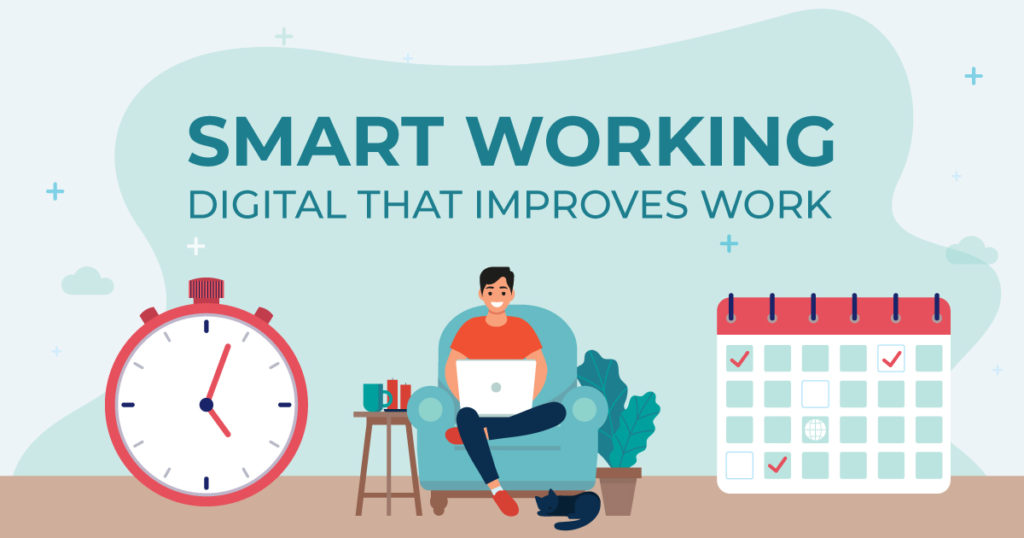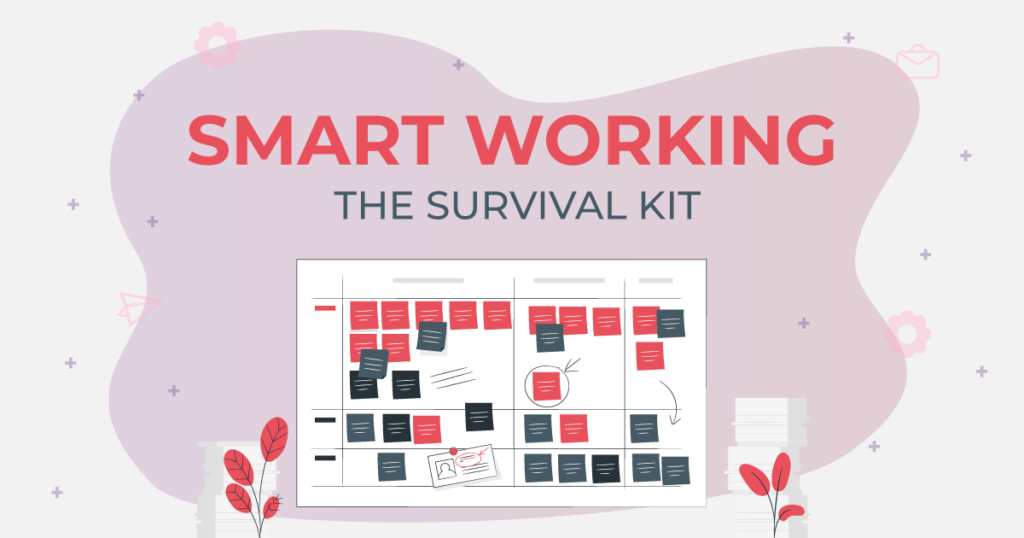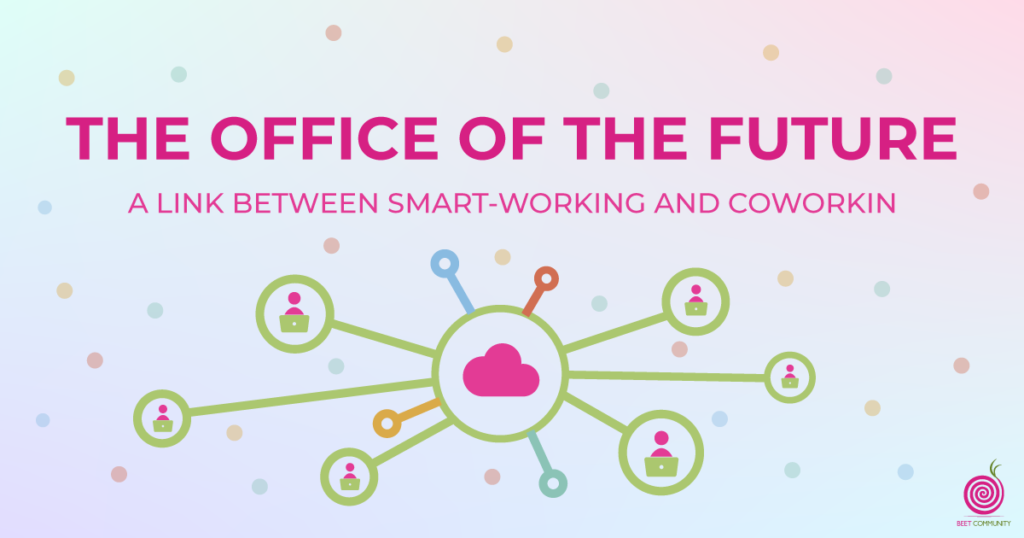
Agile work accelerates digital transformation by projecting all industries into the future
In recent decades, communication and the way we approach to work had an important evolution thanks to the increase of sophisticated equipment and techniques. Today, for example, thanks to digital transformation, smart working or agile work allows us to work comfortably from home or from wherever we prefer.
A real cultural revolution, a change that is unhinging any type of traditional working approach. At the current state in fact, the work system, from the Public Administration to companies of any size and professionals in every sector, is reviewing its organization in relation to the new remote working methods.
But what is meant by smart working? What tools does a smart worker use to face digital transformation in his work?
Smart-working is a new concept of work. It changes the culture of work, more and more oriented to focus on results and to manage target set on project phases and cycles. The working process also changes by introducing a new concept of space and working hours, so spaces are rethought and reorganized to be flexible, virtual and exiciting.
Coworking, for example, reflect the idea of working on the move, encourage collaboration and sharing among workers. Also coliving was created to facilitate smart working, often for workers who need to move from one city to another, ensuring the comforts of a home and the technology of a work space equipped as an office.
Promoting the sharing of spaces means stimulating collaboration between workers and creating a climate of trust between workers and the structure they belong to, bringing human resources to the center of the organization. This new organizational structure makes it possible to rationalize the use of company resources in favor of productivity growth, improvement of management costs and the competitiveness of the services offered.
Furthermore, the autonomous management of time, that this new way of working provides, allows the much desired reconciliation between work and private life.
Therefore, agile work accelerates the use of technology, allowing companies to apply that digital growth suitable for strengthening the measurement and evaluation systems of data based on results, thus managing their competitiveness.
Another important factor of smart working is to facilitate the sharing economy, both as regards the sharing of physical spaces, and for the new “people strategy”, which in a system completely based on open innovations can radically transform the status of employees in shared worker.
Another important factor of smart working is to facilitate the sharing economy, both as regards the sharing of physical spaces, both for the new “people strategy”, that in a completely open innovation-based system can radically transform employee status into a shared worker.
To face the period of digital transformation, there are four main technologies to adopt to enable smart working:
- social collaboration: contains all the tools for agile work aimed at communication and relationships;
- mobility: includes all the tools suitable for smart working, such as platforms, devices and applications;
- security: they concern data security technologies for working remotely;
- workspace thecnology: all the technologies and services to make workspaces more effective and flexible;
As in all crises, even in the case of the COVID-19 emergency, there is a positive aspect: the acceleration of our digital evolution in all fields, it projects us towards a future scenario, which, if managed properly (hopefully), will bring constructive and important changes throughout the globe.







About The Author: Admin
More posts by admin